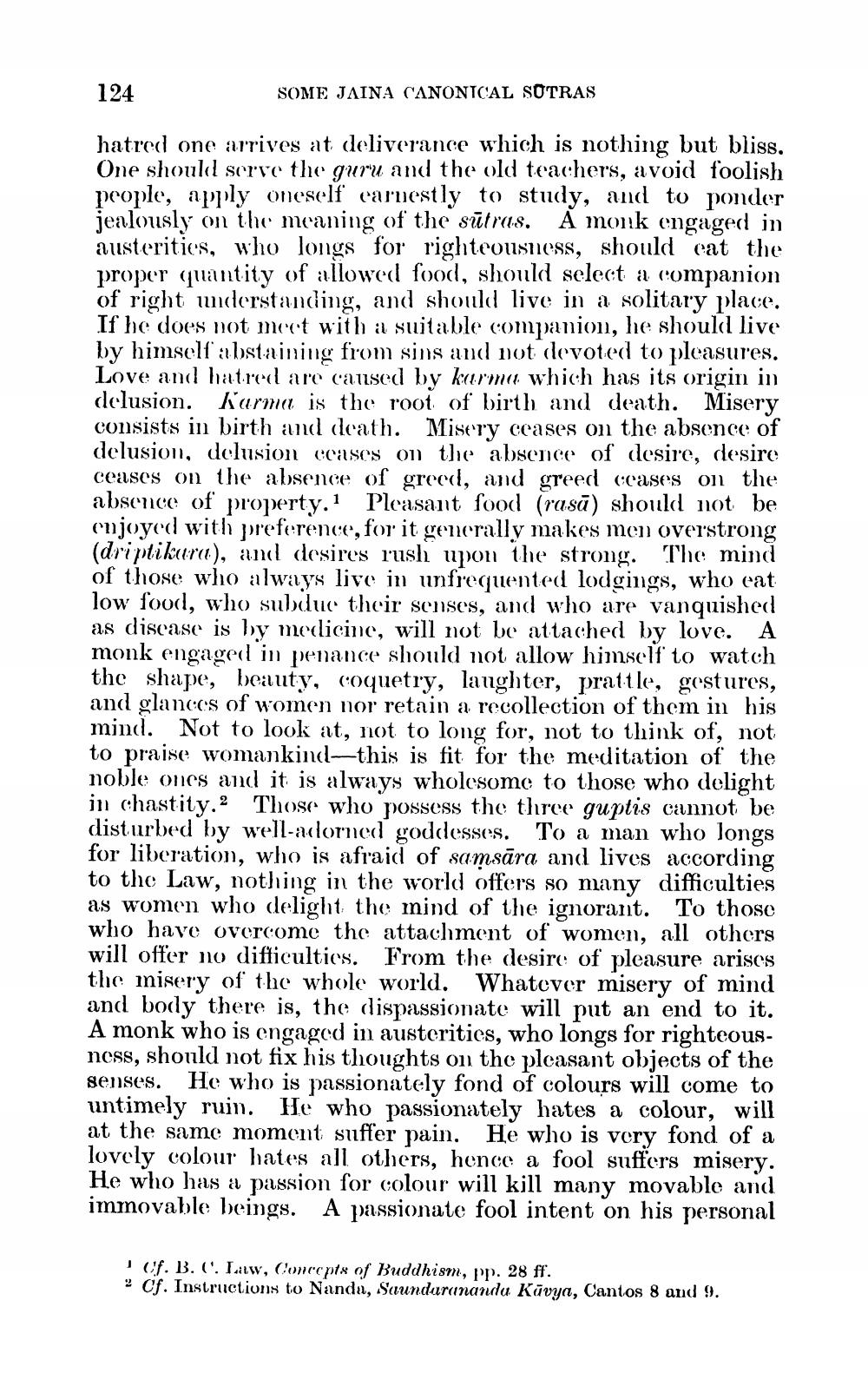________________
124
SOME JAINA CANONICAL SOTRAS
hatred one arrives at deliverance which is nothing but bliss. One should serve the guru and the old teachers, avoid foolish people, apply oneself earnestly to study, and to ponder jealously on the meaning of the sūtras. A monk engaged in austerities, who longs for righteousness, should cat the proper quantity of allowed food, should select a companion of right understanding, and should live in a solitary place. If he does not meet with a suitable companion, he should live by himself abstaining from sins and not devoted to pleasures. Love and hatred are caused by karma which has its origin in delusion. Karma is the root of birth and death. Misery consists in birth and death. Misery ceases on the absence of delusion, delusion ceases on the absence of desire, desire ceases on the absence of greed, and greed (eases on the absence of property. Pleasant food (rasā) should not be enjoyed with preference, for it generally makes men overstrong (driptikaru), and desires rush upon the strong. The mind of those who always live in unfrequented lodgings, who eat low food, who subdue their senses, and who are vanquished as disease is by medicine, will not be attached by love. A monk engaged in penance should not allow himself to watch the shape, beauty, coquetry, laughter, prattle, gestures, and glances of women nor retain a recollection of them in his mind. Not to look at, not to long for, not to think of, not to praise womankind-this is fit for the meditation of the noble ones and it is always wholesome to those who delight in chastity. Those who possess the three guptis cannot be disturbed by well-adorned goddesses. To a man who longs for liberation, who is afraid of samsāra and lives according to the Law, nothing in the world offers so many difficulties as women who delight the mind of the ignorant. To those who have overcome the attachment of women, all others will offer no difficulties. From the desire of pleasure arises the misery of the whole world. Whatever misery of mind and body there is, the dispassionate will put an end to it. A monk who is engaged in austerities, who longs for righteousness, should not fix his thoughts on the pleasant objects of the senses. He who is passionately fond of colours will come to untimely ruin. He who passionately hates a colour, will at the same moment suffer pain. He who is very fond of a lovely colour hates all others. hence a fool suffers misery. He who has a passion for colour will kill many movable and immovable beings. A passionate fool intent on his personal
Cf. B. (!. Law, Concepts of Buddhism, pp. 28 ff. ? Cf. Instructions to Nanda, Saundarunandu Küvya, Cantos 8 and 9.




